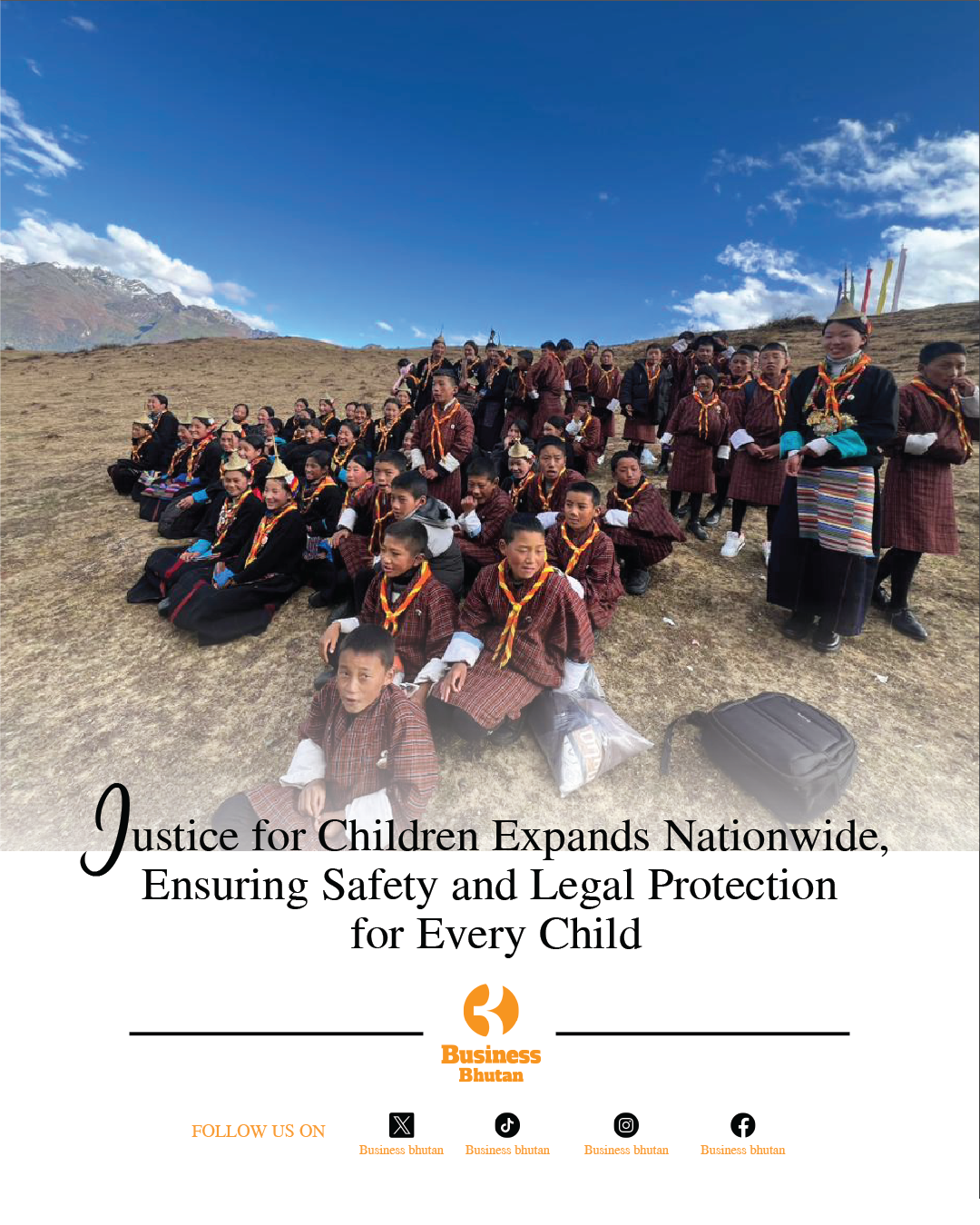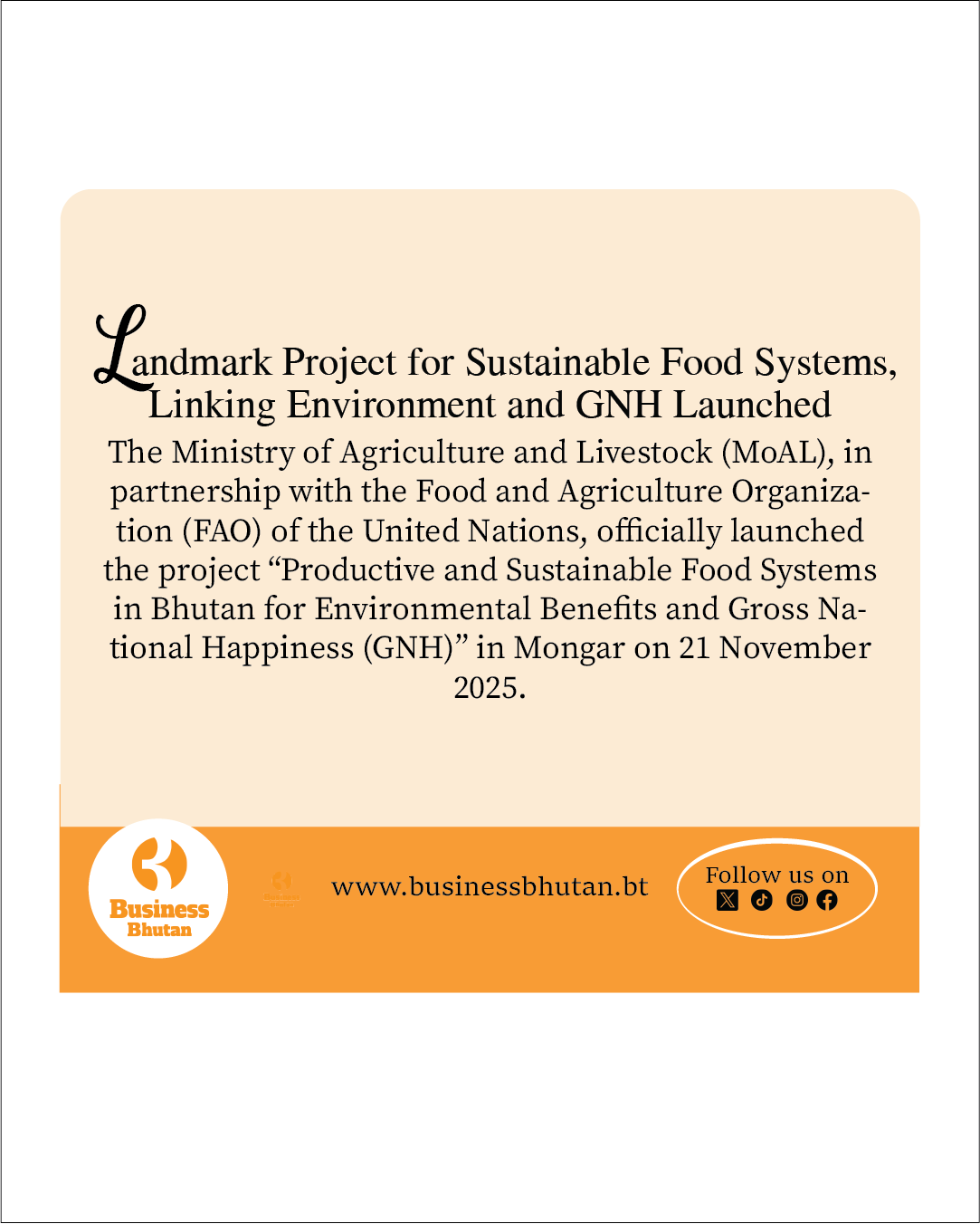The Justice for Children (J4C) initiative is taking a major step forward in safeguarding the rights and well-being of children across Bhutan, extending access to legal aid, protection services, and community support to all 20 districts—including some of the most remote highland regions.
Supported by United Nations International Children’s Emergency Fund (UNICEF) Bhutan, the program works in close partnership with the Royal Bhutan Police (RBP), the Office of the Attorney General (OAG), and Civil Society Organizations (CSOs) such as Respect, Educate, Nurture and Empower Women (RENEW) and Nazhoen Lamtoen to strengthen child-sensitive justice systems and community-based protection networks.
“We aim to ensure that no child in contact with the law is left behind, regardless of location,” a UNICEF Bhutan official said. “Our focus is on improving child-sensitive procedures, building the capacity of frontline workers, and increasing awareness of child rights throughout the country.”
UNICEF has supported the establishment of Women and Child Protection Desks (WCPDs) in all 20 districts, including Gasa—the final district to be covered. These desks serve as the first point of contact for children in difficult circumstances, ensuring timely referrals and adherence to child-friendly procedures.
Legal support has also been reinforced. UNICEF trained private lawyers and court registrars on child-friendly legal aid and developed a pre-trial legal aid framework now used by police nationwide. Collaboration with the OAG has resulted in new guidelines and training manuals for handling child victims and witnesses.
Diversion from formal judicial proceedings remains a key focus to prevent the unnecessary criminalization of children. Since 2024, the Access to Justice for Children Summer School Programme, run in partnership with the Jigme Singye Wangchuck School of Law (JSWSL), has trained 44 professionals. Advocacy programs in remote schools, including Merak and Sakteng, continue to raise awareness of child rights and access to justice.
Through Training of Trainers (ToT) programs and nationwide roll-outs, police officers, judges, and prosecutors have received extensive training on child-sensitive justice.
According to UNICEF, the J4C program is operational across all 20 districts, including highland gewogs. The focus on ToT-based training, institutional strengthening, and partnerships with academic institutions aim to ensure long-term sustainability.
While reported cases of child abuse in highland areas remain low, the RBP maintains readiness to respond to incidents. “The RBP has its arms in every corner of the country to ensure child protection in both urban and remote areas,” the RBP stated. However, low awareness and coordination challenges continue to be areas of concern.
Meanwhile, in community-based advocacy and support services, RENEW plays a crucial role in extending child protection services to the grassroots level.
“We engage families, schools, and local leaders through a community-based network of trained volunteers and Community Service Centers,” said Anu Rai, Counselor and Project Officer at RENEW. “This approach strengthens awareness and prevention of violence against children and women.”
In schools, RENEW supports the Druk Adolescent Initiative for Sexual Awareness Network (DAISAN), enabling stronger links between students, families, and communities. RENEW also conducts parenting education sessions to help caregivers adopt positive communication and non-violent discipline practices.
At the community level, RENEW’s service centers function as hubs for case management, awareness activities, and referrals. Local leaders regularly participate in advocacy programs to promote ownership and strengthen protection at the gewog and chiwog levels.
Reaching highland communities such as Lunana, Laya, Merak, and Sakteng, however, remains challenging due to rugged terrain, nomadic lifestyles, and seasonal activities like cordyceps collection. “Families frequently move, making it difficult to gather people for awareness sessions or deliver services consistently,” Anu said.
She added that incidents of domestic and gender-based violence are often underreported in these areas. Seasonal occupations also leave little time for families to engage in child protection or health education.
Despite these obstacles, the program has continued to expand its volunteer network and intensify awareness efforts. High-level advocacy led by Her Majesty Gyalyum Sangay Choden Wangchuck in several highland communities has further strengthened protection systems. Seasonal sensitization programs and livelihood training are helping build resilience and prevent violence.
UNICEF and RENEW aim to consolidate the Multi-Sectoral Task Force (MSTF), Community-Based Support System (CBSS), and DAISAN initiatives nationwide to improve coordination, early case detection, and timely interventions. Capacity building for local leaders and volunteers, including specialized training in responding to gender-based violence and child protection, remains a priority.
Media partnerships are also recognized as vital in reaching remote populations. “Working with media outlets helps us take information, stories, and awareness messages to even the most isolated communities,” Anu reiterated.
The NGO emphasized the need for detailed needs assessments and community-led consultations to ensure evidence-based, context-specific interventions for children and families in remote regions.
With nationwide coordination and strengthened community networks, the J4C initiative marks an important step toward ensuring every child in Bhutan—no matter where they live—receives protection, care, and access to justice.
This story was covered as part of the media reporting grant from UNICEF through JAB.
Nidup Lhamo,
From Thimphu




![Fresh Beginnings: Pasakha Vendors Gear Up for New Vegetable Market - Duplicate - [#16963] Fresh Beginnings: Pasakha Vendors Gear Up for New Vegetable Market - Duplicate - [#16963]](https://businessbhutan.bt/wp-content/uploads/2025/11/Asset-200.png)











